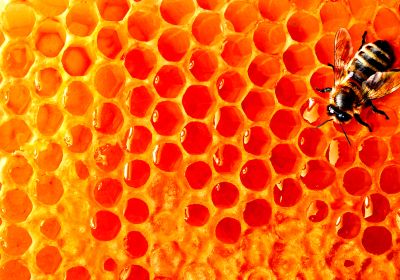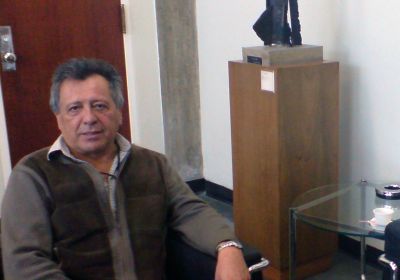-
-
-
-
-
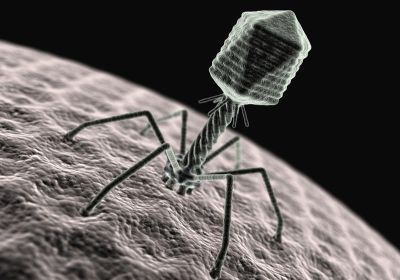 We can blame the livestock corporations for the destruction of antibiotics' ability to fight human infection. They routinely inject all the animals we eat — chickens, cows, sheep and pigs — with huge amounts of antibiotics so that the animals grow faster and plumper, without any infection. The faster they can put meat on the kitchen table for us to consume, the greater their profits.
We can blame the livestock corporations for the destruction of antibiotics' ability to fight human infection. They routinely inject all the animals we eat — chickens, cows, sheep and pigs — with huge amounts of antibiotics so that the animals grow faster and plumper, without any infection. The faster they can put meat on the kitchen table for us to consume, the greater their profits. -
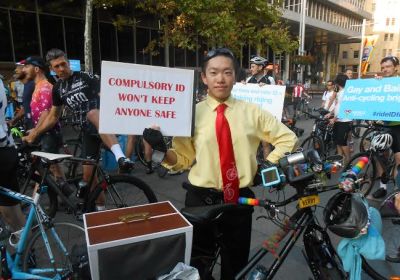 A rally of 200 bicycle riders and their supporters was held in the early morning of February 18 in front of NSW State Parliament. The riders were opposing the introduction of mandatory photo identification for riders and a massive increase in fines. There has been no evidence produced by the Mike Baird government that these measures will lead to greater safety for riders and other road users. Riders argue the new rules will be a disincentive to riding, especially for children, as anyone over the age of 12 years is not allowed to ride on the footpath.
A rally of 200 bicycle riders and their supporters was held in the early morning of February 18 in front of NSW State Parliament. The riders were opposing the introduction of mandatory photo identification for riders and a massive increase in fines. There has been no evidence produced by the Mike Baird government that these measures will lead to greater safety for riders and other road users. Riders argue the new rules will be a disincentive to riding, especially for children, as anyone over the age of 12 years is not allowed to ride on the footpath. -
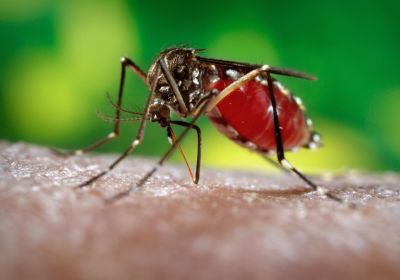 The new Zika virus threat has caused alarm among pregnant women around the world, due to the threat of those infected giving birth to babies with microcephaly, or small brain, which can cause brain damage and mental incapacity.
The new Zika virus threat has caused alarm among pregnant women around the world, due to the threat of those infected giving birth to babies with microcephaly, or small brain, which can cause brain damage and mental incapacity. -
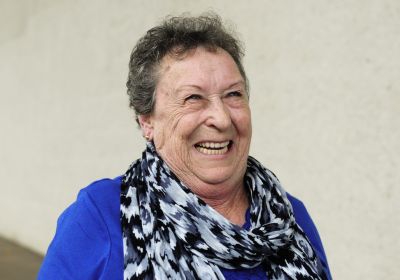 Queensland pensioner and grandmother, 69-year-old Yvonne D'Arcy, who has twice beaten breast cancer, won an important victory in the High Court on October 7. D'Arcy brought a landmark legal challenge against US-based biotech company Myriad Genetics after it was granted a patent over the BRCA1 and BRCA2 genes. Mutations in the genes dramatically increase a woman's chance of developing breast and ovarian cancer.
Queensland pensioner and grandmother, 69-year-old Yvonne D'Arcy, who has twice beaten breast cancer, won an important victory in the High Court on October 7. D'Arcy brought a landmark legal challenge against US-based biotech company Myriad Genetics after it was granted a patent over the BRCA1 and BRCA2 genes. Mutations in the genes dramatically increase a woman's chance of developing breast and ovarian cancer. -
 What causes heart disease — high fat or the over-consumption of sugar? Humans have been eating all sorts of foods for more than 200,000 years, since we evolved from the African savannah. But what should we be eating to stay healthy in the 21st century? Should we eat large amounts of protein, or avoid meat? Should we avoid carbohydrates, including vegetables and fruit? Should we avoid all fats or just some? Should we follow the Aitkin’s diet, the paleo diet, the low GI or high GI diet, or just go vegan? It is very confusing.
What causes heart disease — high fat or the over-consumption of sugar? Humans have been eating all sorts of foods for more than 200,000 years, since we evolved from the African savannah. But what should we be eating to stay healthy in the 21st century? Should we eat large amounts of protein, or avoid meat? Should we avoid carbohydrates, including vegetables and fruit? Should we avoid all fats or just some? Should we follow the Aitkin’s diet, the paleo diet, the low GI or high GI diet, or just go vegan? It is very confusing. -
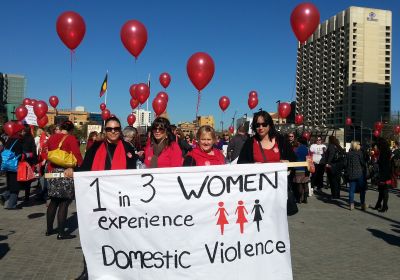 One in three women is a victim of domestic violence. I am one of those. The violence did not happen until I was pregnant and, as a result, vulnerable. I did not report it to the police as I was too scared: it was carried out in the privacy of our flat; there was no obvious injury and he was very contrite afterwards. I vividly remember him buying me breakfast at a cafe the next morning, an unusual event, while I sat too traumatised and depressed to say anything. Before that, I had never suffered a physical assault from anyone.
One in three women is a victim of domestic violence. I am one of those. The violence did not happen until I was pregnant and, as a result, vulnerable. I did not report it to the police as I was too scared: it was carried out in the privacy of our flat; there was no obvious injury and he was very contrite afterwards. I vividly remember him buying me breakfast at a cafe the next morning, an unusual event, while I sat too traumatised and depressed to say anything. Before that, I had never suffered a physical assault from anyone. -
 We have been assaulted by a massive celebration of 100 years since the landing at Gallipoli on April 25. This is partly due to the success of the protests at the 200th anniversary celebration of the January 26, 1788 First Fleet landing at Sydney Cove. There have been many protests on January 26 since then, undercutting and besmirching Australian nationalism.
We have been assaulted by a massive celebration of 100 years since the landing at Gallipoli on April 25. This is partly due to the success of the protests at the 200th anniversary celebration of the January 26, 1788 First Fleet landing at Sydney Cove. There have been many protests on January 26 since then, undercutting and besmirching Australian nationalism. -
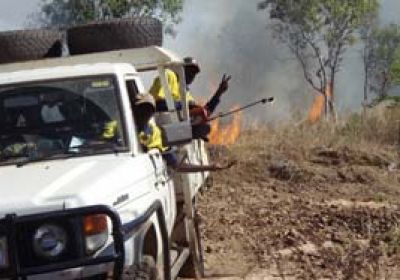 I take issue with Ben Courtice’s and Emma Murphy’s criticism of my review of Bill Gammage’s book, The Biggest Estate on Earth: How Aborigines Made Australia in the January 28 Green Left Weekly. I have two major arguments with their criticism. First, Gammage has made a major contribution to our understanding of how Aboriginal Australians cared for the land for more than 60,000 years right across the continent.
I take issue with Ben Courtice’s and Emma Murphy’s criticism of my review of Bill Gammage’s book, The Biggest Estate on Earth: How Aborigines Made Australia in the January 28 Green Left Weekly. I have two major arguments with their criticism. First, Gammage has made a major contribution to our understanding of how Aboriginal Australians cared for the land for more than 60,000 years right across the continent.
Coral Wynter
Coral Wynter
